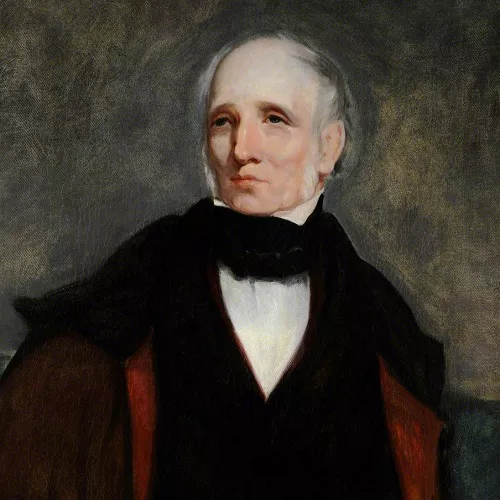
William Wordsworth (1770–1850) is a foundational figure in English Romantic poetry, renowned for his profound connection to nature and his exploration of human emotion. His verse reflects a deep reverence for the natural world, capturing its transformative power. Through works like Lyrical Ballads and The Prelude, Wordsworth reshaped poetic expression, emphasizing simplicity, emotional resonance, and the beauty of ordinary life.
William Wordsworth Biography
Born on April 7, 1770, in Cockermouth, Cumberland (now Cumbria), England, William Wordsworth grew up amidst the scenic beauty of the Lake District, which profoundly influenced his poetry. His parents, John and Ann Wordsworth, instilled in him a love of reading, but tragedy struck early when his mother died in 1778, followed by his father in 1783. These losses shaped his introspective nature and appreciation for familial bonds.
Wordsworth attended Hawkshead Grammar School and later studied at St. John’s College, Cambridge, graduating in 1791. During his youth, he traveled extensively, including a pivotal visit to France during the French Revolution. Initially an ardent supporter of revolutionary ideals, Wordsworth grew disillusioned with its violence, a shift reflected in his later works.
In 1795, Wordsworth settled in Dorset with his sister Dorothy, who became his lifelong confidante and collaborator. Dorothy’s journals and observations deeply influenced his poetry, particularly her vivid depictions of nature. That same year, Wordsworth met poet Samuel Taylor Coleridge, and their friendship proved transformative. Together, they published Lyrical Ballads in 1798, a groundbreaking collection that marked the birth of Romanticism. Its preface articulated Wordsworth’s poetic philosophy: the use of common language and themes drawn from everyday life.
Wordsworth married Mary Hutchinson in 1802, with whom he had five children. Despite personal tragedies, including the deaths of two of his children, Wordsworth continued to write, producing some of his most celebrated works. The Prelude, an autobiographical epic, chronicles his intellectual and spiritual growth. Posthumously published in 1850, it remains a cornerstone of English literature.
In 1843, Wordsworth was appointed Poet Laureate of England, a recognition of his influence and contributions. He passed away on April 23, 1850, leaving behind a legacy that forever transformed English poetry.
William Wordsworth Poems
William Wordsworth’s oeuvre reflects his commitment to exploring human emotion and the natural world. Below are some of his most celebrated works:
1.“I Wandered Lonely as a Cloud”
This iconic poem, often called “Daffodils,” captures Wordsworth’s awe for nature’s beauty and its enduring impact on the human spirit.
2.“Tintern Abbey”
A meditation on memory, nature, and personal growth, this poem is a masterpiece of reflective lyricism.
3.“Ode: Intimations of Immortality”
In this profound ode, Wordsworth explores themes of childhood wonder, spiritual connection, and the loss of innocence.
4.“The Prelude”
An epic poem tracing the poet’s journey of self-discovery, The Prelude is a landmark in autobiographical literature.
5.“Lines Written in Early Spring”
This poem juxtaposes nature’s harmony with humanity’s discord, embodying Romantic ideals.
6.“The Solitary Reaper”
A lyrical depiction of a Highland girl’s song, this poem celebrates the beauty of ordinary moments.
7.“London, 1802”
A sonnet lamenting moral decay, this work calls for a return to virtue, exemplified by poet John Milton.
8.“Composed Upon Westminster Bridge”
Wordsworth celebrates the tranquility and grandeur of a morning in London, blending urban and natural imagery.
9.“Michael”
A narrative poem about a shepherd’s life, Michael is a poignant exploration of loss and resilience.
10.“To My Sister”
This gentle lyric highlights Wordsworth’s appreciation for familial bonds and the restorative power of nature.
These poems illustrate Wordsworth’s ability to elevate ordinary experiences into profound reflections on life, love, and humanity’s connection to the world.
William Wordsworth Quotes
1.“The child is father of the man.” (My Heart Leaps Up)
2.“Fill your paper with the breathings of your heart.”
3.“A poet is a man speaking to men.”
4.“Nature never did betray the heart that loved her.”
5.“Come forth into the light of things, let nature be your teacher.”
6.“In that blessed mood, in which the burden of the mystery is lightened.” (Tintern Abbey)
7.“Poetry is the spontaneous overflow of powerful feelings: it takes its origin from emotion recollected in tranquility.”
8.“Life is divided into three terms—that which was, which is, and which will be.”
9.“Getting and spending, we lay waste our powers.” (The World Is Too Much with Us)
10.“To begin, begin.”
William Wordsworth Facts
1.Wordsworth was inspired by the French Revolution but later became politically conservative.
2.His sister Dorothy played a crucial role in shaping his poetic vision.
3.Lyrical Ballads (1798) marked the beginning of English Romanticism.
4.Wordsworth was deeply influenced by the Lake District’s natural beauty.
5.He served as Poet Laureate of England from 1843 until his death in 1850.
6.Wordsworth’s marriage to Mary Hutchinson was a source of emotional stability.
7.His poem “I Wandered Lonely as a Cloud” was inspired by a walk with Dorothy and Mary.
8.Wordsworth’s house, Dove Cottage, is now a museum dedicated to his life and work.
9.He initially intended The Prelude to be an introduction to a larger philosophical poem.
10.Wordsworth lost two of his children, an experience that profoundly affected his later poetry.
